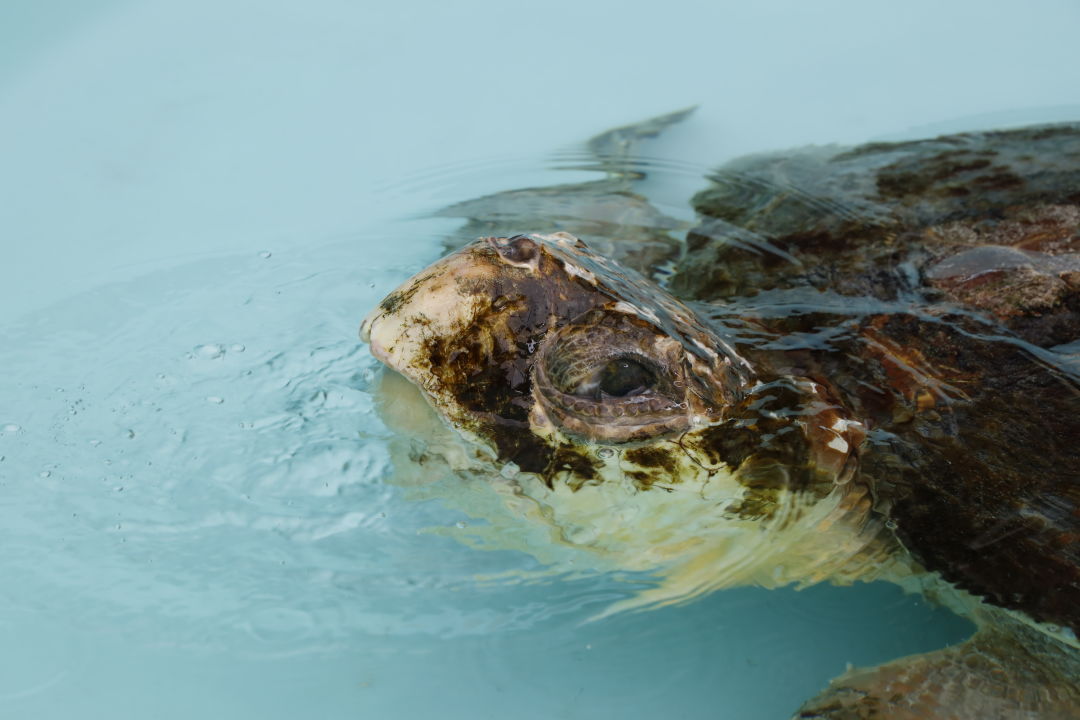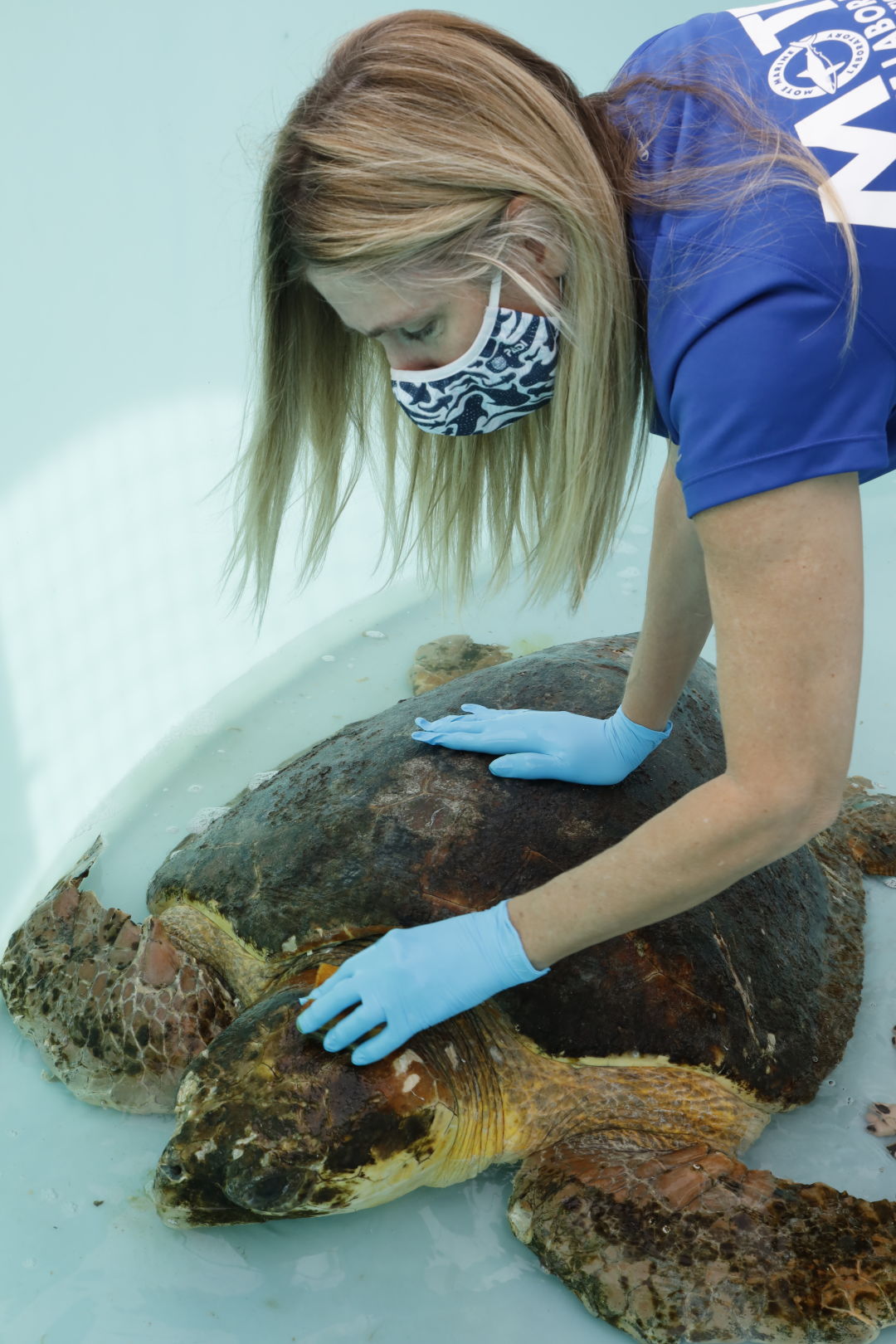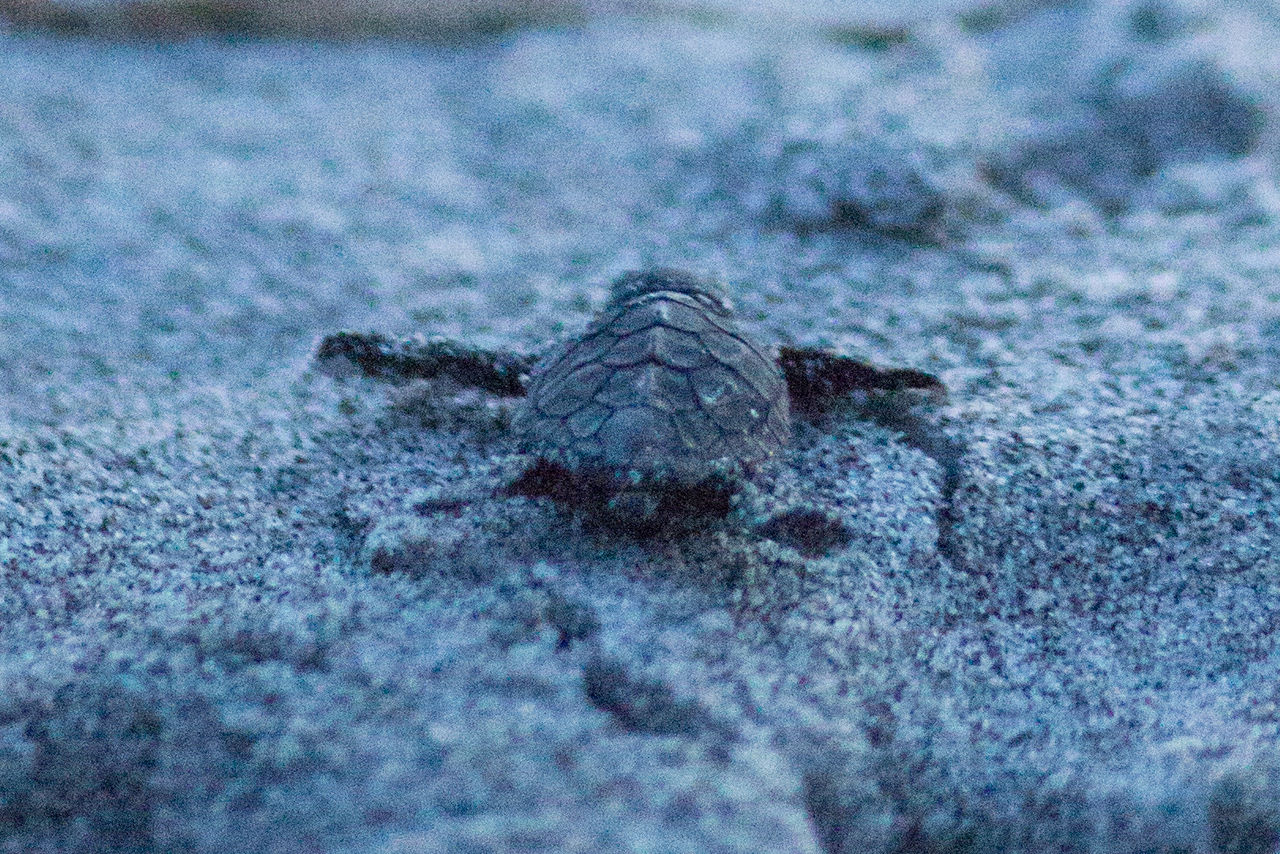Mote Releases Recovered Sea Turtle on Longboat Key

Connor, an adult male loggerhead sea turtle, received treatment for lethargy and skin erosion at Mote's Sea Turtle Rehabilitation Hospital.
Mote Marine Laboratory released "Connor," a stranded adult male loggerhead sea turtle, back into the Gulf of Mexico this morning. Named after Longboat Key police officer Joshua Connors, who found the turtle floating in a residential canal in September 2020, Connor was brought to Mote's Sea Turtle Rehabilitation Hospital with lethargy and skin erosion (particularly on his right front flipper), possibly due to monofilament line. He was given fluids, injectable antibiotics and placed in a shallow rehabilitation pool. Over time, he began to eat more and his skin healed; eventually, he began to forage for food on his own and was moved into Mote's dolphin/whale hospital rehabilitation pools for deeper diving.

Connor receives care from a Mote employee
Connor will be released with a satellite tag from Mote's Sea Turtle Conservation & Research Program. Male sea turtles do not return to land after they leave the beach as hatchlings unless they are injured or sick, making them a harder group to study. By satellite tagging adult male loggerheads that stranded and received hospital care, scientists can learn more about post-release behavior of rehabilitated turtles as well as behavior, habitat, home range and migratory pathways of adult male loggerheads in the Gulf of Mexico. You can follow Connor's track here.
If you see distressed or deceased sea turtle, manatee, dolphin or whale in Sarasota or Manatee counties, report it to Mote’s Stranding Investigations Program via its 24-hour hotline at (888) 345-2335. When calling, be ready to provide a thorough description of the animal, its behaviors, and the location. Take photos and video, if possible. Never attempt to rescue or push back any animal in distress.



